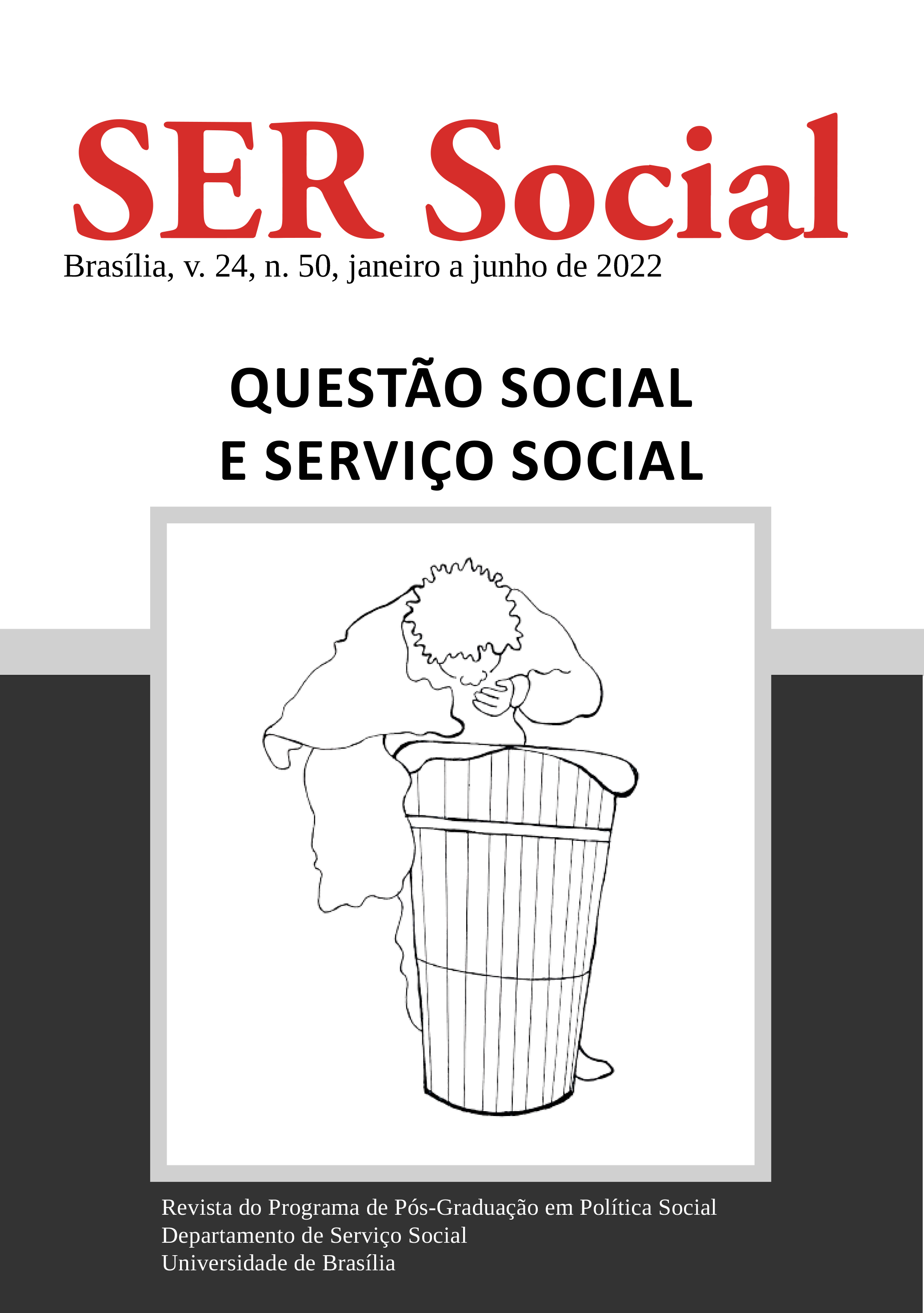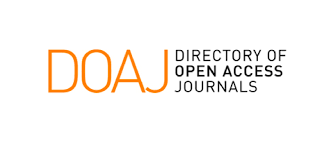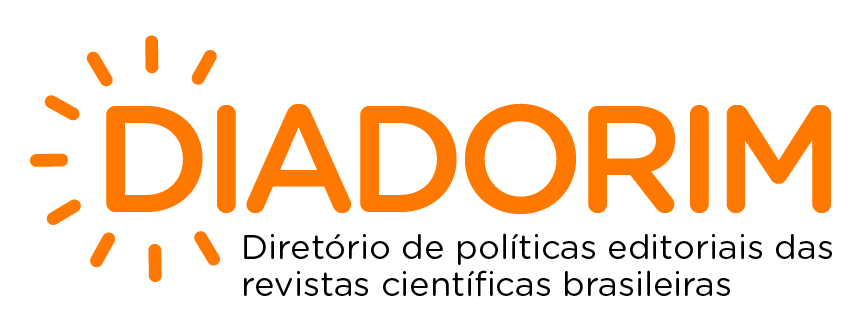The social question in a context of crisis and neoconservative restoration of the capitalism
DOI:
https://doi.org/10.26512/sersocial.v24i50.38729Keywords:
Social question. Contemporary capitalism. Neoconservatism. Social inequality.Abstract
This text presents reflections about the social question in the relationships engendered by the contemporary capitalism and by the configurations assumed in the labor, which produce new expres- sions and semantic deviations which depoliticize them. It debates the meaning of the social question, the responses gave by the social State in the Fordist/ Keynesian accumulation; the strategies of overcoming the structural crisis of the capital by neoliberalism and the new ex- pressions of the social question; and the current semantic deviations – attributed by the neoliberal offensive and by the neoconservative restoration –, with view to depoliticize it and with consequences for
the social work. It stems from a literature review in the field of Social Work and alike. The results point out for a social intervention ground-
ed on the ethics of accountability, in which the expansion of the logic of capital reaches to the individuals, thought as human capital, with
integrative intent, from the childhood to the old age, of becoming them companies of themselves, neutralizing social class conflicts.
Downloads
References
ANTUNES, Ricardo. O privilégio da servidão: o novo proletariado de serviços na era digital. São Paulo: Boitempo, 2018.
BIDET, Jaques. A estrutura das classes e de partido na longa sociedade moderna. In: AMORIM, Henrique (Org.). Classes e lutas de classes: novos questionamentos. São Paulo: Annablume, 2013, p. 47-61.
BROWN, Wendy. Nas ruínas do neoliberalismo: ascensão da política antidemocrática no ocidente. São Paulo: Editora Filosófica Politeia, 2019.
CARCANHOLO, Marcelo Dias. Crise econômica atual: e seus impactos para a organização da classe trabalhadora. Aurora, Marília (SP),
v. 3, n. 2, p. 1-10, ago. 2010. Disponível em: <https://revistas.marilia. unesp.br/index.php/aurora/article/view/1226>. Acesso em: 13 mai. 2021.
CARCANHOLO, Marcelo Dias. Dialética do desenvolvimento peri- férico: dependência, superexploração da força de trabalho e política econômica. Revista Econ. Contemp., Rio de Janeiro, v. 12, n. 2, p. 247-272, mai./ago. 2008. Disponível em: <https://www.scielo.brec/a/R3DpCGtLmtpBvjDx63vPD6f/?lang=pt&format=pdf>. Acesso em: 1 abr. 2021.
CASTEL, Robert. As metamorfoses da questão social: uma crônica do salário. 12. ed. Petrópolis (RJ): Vozes, 2015.
DARDOT, Pierre; LAVAL, Christian. A nova razão do mundo: en- saio sobre a sociedade neoliberal. São Paulo: Boitempo, 2016.
HARVEY, David. O novo imperialismo. 2. ed. São Paulo: Edições Loyola, 2005.
HARVEY, David. Condição Pós-Moderna. São Paulo: Edições Loyola, 1992.
IAMAMOTO, Marilda Vilela. A questão social no capitalismo. Tem- poralis, Brasília: ABEPSS, ano 2, n. 3, p. 9-32, jan/jun. 2001.
MANDEL, Ernest. O capitalismo tardio. São Paulo: Abril Cultural, 1982. (Coleção Os economistas).
MARX, Karl. O capital: crítica da economia política; Livro I: o pro- cesso de produção do capital. 2. ed. São Paulo: Boitempo, 2017.
MARX, Karl. Sobre a questão judaica. São Paulo: Expressão Popu- lar, 2009.
MÉSZÁROS, István. Para além do capital: rumo a uma teoria da transição. São Paulo: Boitempo Editorial, 2009.
NETTO, José Paulo. A construção do projeto ético-político do Serviço Social. In: CFESS/ABEPSS/CEAD/UnB. Capacitação em Serviço Social e Política Social. Brasília, 1999.
TELLES, Vera da Silva. Questão social: afinal, do que se trata? São Paulo em Perspectiva, v. 10, n. 4, p. 85-95, out-nov. 1996. Disponível em: http://produtos.seade.gov.br/produtos/spp/v10n04/v10n04_10. pdf. Acesso em: 4 jun. 2021
Downloads
Published
How to Cite
Issue
Section
License
Copyright (c) 2022 SER Social

This work is licensed under a Creative Commons Attribution-NonCommercial-NoDerivatives 4.0 International License.
 Todo o conteúdo deste periódico, exceto onde está identificado, está licenciado sob uma https://creativecommons.
Todo o conteúdo deste periódico, exceto onde está identificado, está licenciado sob uma https://creativecommons.
Copyright: Os autores serão responsáveis por obter o copyright do material incluído no artigo, quando necessário.
Excepcionalmente serão aceitos trabalhos já publicados (seja em versão impressa, seja virtual), desde que devidamente acompanhados da autorização escrita e assinada pelo autor e pelo Editor Chefe do veículo no qual o trabalho tenha sido originalmente publicado.










